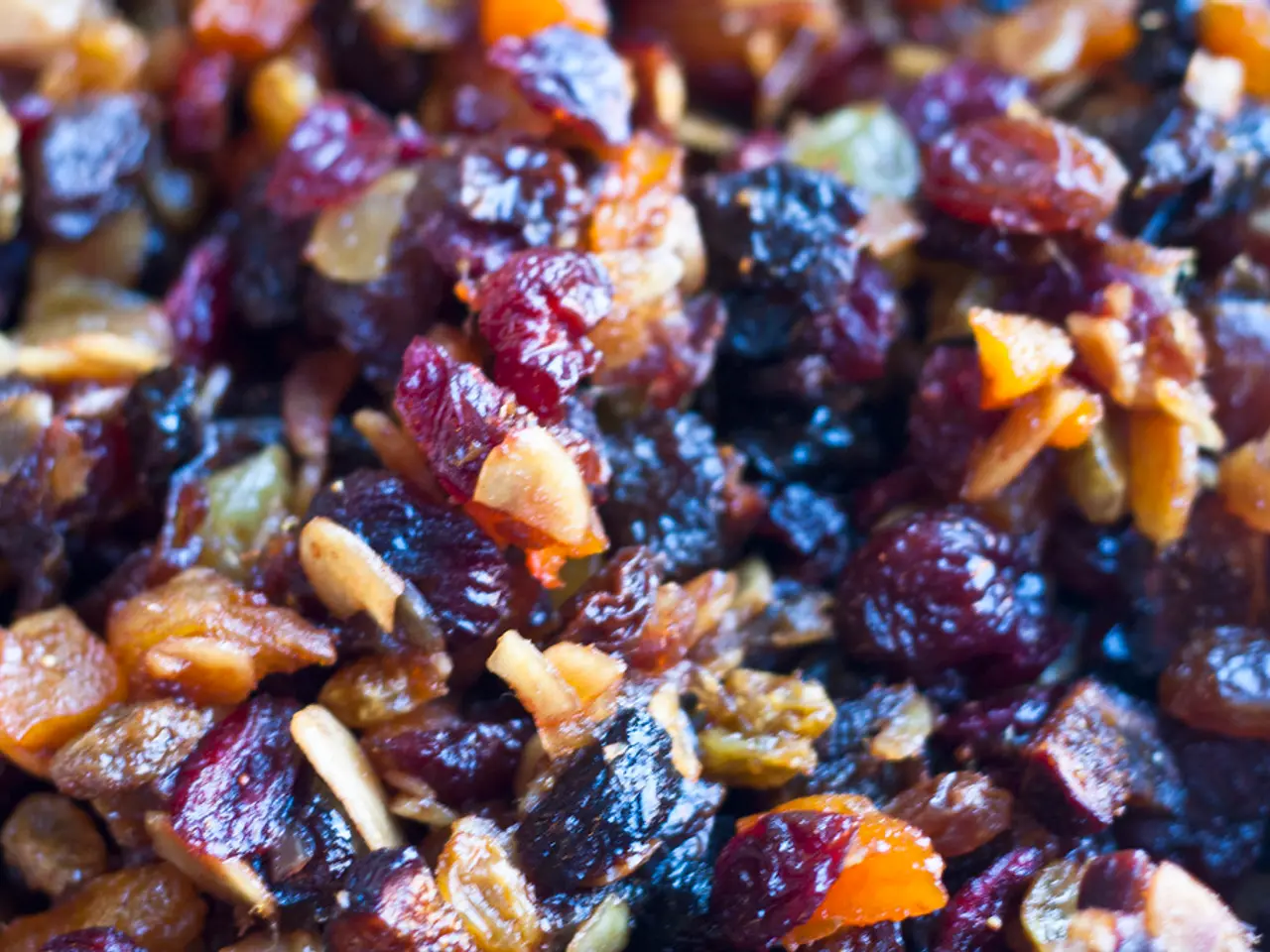Harnessing Nutrition from Different Quarters: Exploring the Nutritious Potential of Protein from Non-traditional Sources Such as Bugs
In the ever-evolving world of food, a new frontier is emerging: insect-based products. From protein bars and snacks to pastas, the food industry is exploring innovative ways to incorporate these novel proteins into our daily diets [1].
But why the shift towards insect protein? For one, these tiny creatures are packed with high-quality protein, providing all nine essential amino acids [2]. Insects like crickets and black soldier flies are complete proteins, offering a nutritional punch that rivals traditional protein sources such as beef and chicken. They are also rich in healthy fats (omega-3 and omega-6), vitamins (including B12 and riboflavin), minerals (such as iron, zinc, and magnesium), dietary fiber, and antioxidants [2][3].
From an environmental sustainability perspective, insect farming offers a significant advantage. It requires far less land, water, and feed compared to traditional livestock, making it a more efficient and eco-friendly protein source [2][4][5]. Insects have fast life cycles and can be farmed vertically in controlled environments, reducing transportation impacts [5]. Moreover, certain insect species efficiently convert organic waste into high-value proteins, improving soil health through their waste byproducts (frass) [2][4][5]. This not only reduces landfill and methane emissions but also promotes biodiversity and nutrient cycling, supporting ecosystem health [2].
Insect farming can also be a solution for regions with limited access to traditional agriculture, providing a local, sustainable, and nutritious food source [1]. By turning organic waste into valuable food and feed ingredients, insect farming can help address food security, particularly in rural communities [2][5].
As awareness grows and demand increases, the insect-based food industry is expected to expand [1]. Insect protein offers a sustainable and nutritious alternative for those looking to diversify their protein sources [1]. Insect-based products are already on the market and are expected to become more mainstream in the coming years [1].
Moreover, insect protein can help combat malnutrition by offering essential micronutrients [1]. In a world where malnutrition remains a pressing issue, the nutritional benefits of insect protein make it a promising solution.
In conclusion, incorporating insect protein into modern diets can significantly contribute to a more sustainable and nutritious food system. This combination makes insect protein a promising part of future sustainable food systems [1][2][3][5]. Embrace the future, and consider the benefits of insect protein for your health and the planet.
References:
[1] FAO. (2013). Edible insects: Future prospects for food and feed security. Retrieved from https://www.fao.org/3/a-i4788e.pdf
[2] UN Food and Agriculture Organization. (2013). Edible insects: Future prospects for food and feed security. Retrieved from https://www.fao.org/3/a-i4788e.pdf
[3] Nijdam, D., & Cohen, J. (2014). The environmental benefits of edible insects. Journal of Cleaner Production, 100, 102-112.
[4] Bell, G. W., & Booth, E. (2015). Insect farming as a sustainable alternative to conventional livestock. Animal Frontiers, 5(3), 44-48.
[5] FAO. (2017). Insects as food and feed: Facts and opportunities. Retrieved from https://www.fao.org/3/a-i7389e.pdf
- The shift towards insect protein in our diets is driven by their high-quality protein content, rivaling traditional protein sources like beef and chicken.
- Insects offer a nutritional advantage, as they are rich in healthy fats, vitamins, minerals, dietary fiber, and antioxidants, providing all nine essential amino acids.
- From an environmental standpoint, insect farming is more efficient and eco-friendly, requiring less land, water, and feed, and producing less methane emissions, compared to traditional livestock.
- Insect farming can offer a local, sustainable, and nutritious food source for regions with limited access to traditional agriculture, contributing to food security, particularly in rural communities.
- As the insect-based food industry expands, insect protein offers a sustainable and nutritious alternative for those looking to diversify their protein sources, aiding in combating malnutrition by providing essential micronutrients.
- Embracing insect protein in modern diets can contribute significantly to a more sustainable and nutritious food system, making it a promising part of future sustainable food systems, benefiting both health and the planet.




